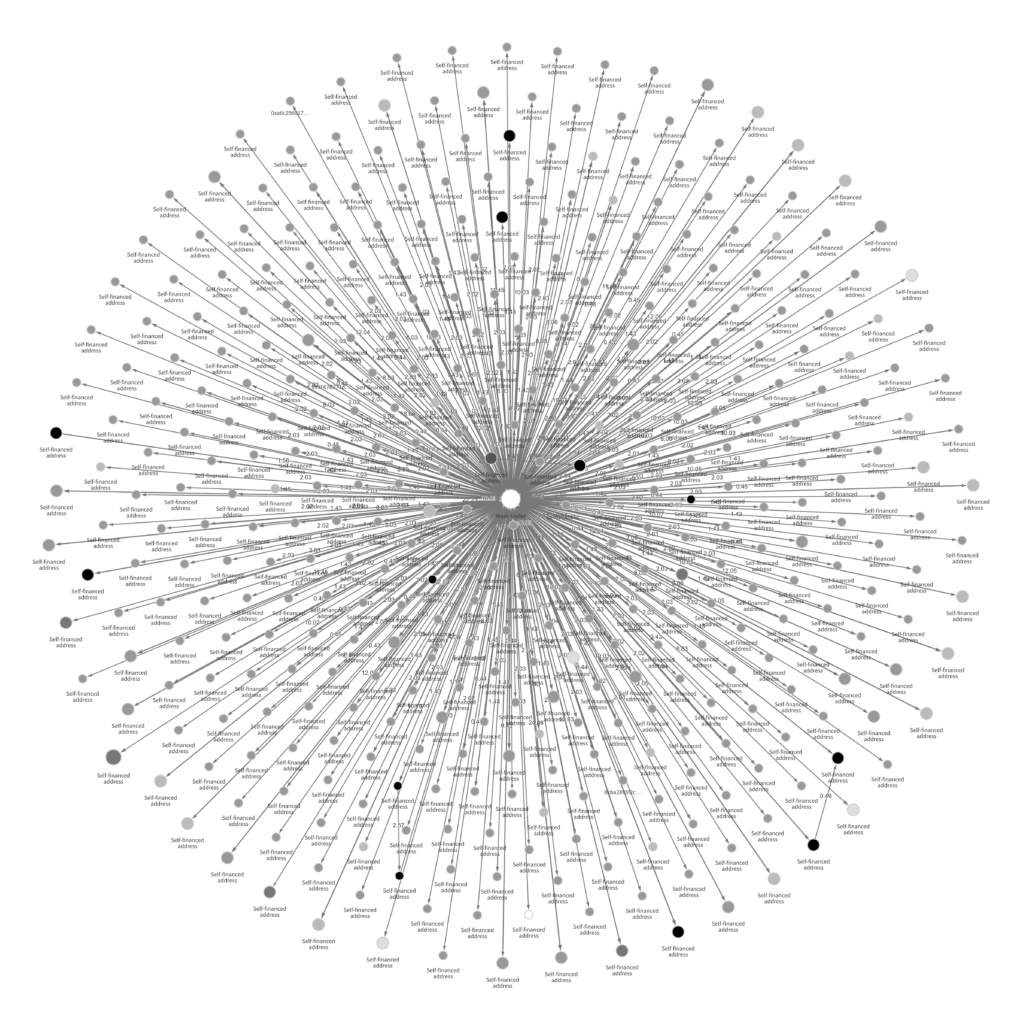NFT wash traders scammed $9M from unsuspecting newbies last year

Forensic blockchain unit Chainalysis has proven instances of money laundering and wash trading across crypto-powered NFT marketplaces like OpenSea.
Chainalysis tracked $44.2 billion in cryptocurrencies sent to ERC-721 and ERC-1155 contracts throughout 2021 (the token standards that govern most NFTs on the Ethereum blockchain).
In a report published last week, the New York-headquartered firm identified 262 groups which engaged in NFT wash trading.
Some dodgy NFT issuers in question conducted hundreds of wash trades overall.
As opposed to wash trading typically found on crypto exchanges, which is mostly about fudging trade volumes to appear more impressive, NFT wash traders attempt to make their tokens more valuable than is actually the case.
This is achieved by “‘selling it’ to a new wallet the original owner also controls,” explained Chainalysis.
“In theory, this would be relatively easy with NFTs, as many NFT trading platforms allow users to trade by simply connecting their wallet to the platform, with no need to identify themselves.”
NFT markets allow permissionless wash trading
As has long been suspected and now shown by Chainalysis’ research, NFT creators can technically inflate the value of any NFT by “selling” it to another wallet controlled by the creator.
Marketplaces then display the fake sales’ value as the NFT’s most recent trade price. If the ruse works — which it commonly does — unsuspecting marks buy NFTs at inflated, arbitrary prices.
The wash trader wins as long as their NFT sells for more crypto than was spent on gas and other transaction fees.
Indeed, due to high Ethereum gas fees, some unsophisticated NFT wash traders actually lost money. However, Chainalysis found 110 of the 262 phoney sellers (about 42%) made millions in profits.
“The 110 profitable wash traders have collectively made nearly $8.9 million in profit from this activity, dwarfing the $416,984 in losses made by the 152 unprofitable wash traders,” wrote Chainalysis.
“Even worse, that $8.9 million is most likely derived from sales to unsuspecting buyers who believe the NFT they’re purchasing has been growing in value, sold from one distinct collector to another.”

Chainalysis could track NFT wash trading by analyzing so-called “self-funded addresses,” which received crypto intended for fake trades routed from other addresses controlled by the NFT issuer.
Researchers then cross-referenced these self-funded addresses with secondary addresses that had received funds from wallets linked to each NFT’s creator.
Chainalysis could not track more sophisticated money laundering operations involving large numbers of coordinators, such as mixers like Tornado Cash, privacy coins like Monero, or opaque darknet markets like Hydra.
Restricted to only the most obvious examples, Chainalysis nevertheless found many users blatantly conducting hundreds of wash trades.
The most prolific wash trader conducted 830 false sales last year, but Chainalysis reported they were yet to make any profit.
Regulators consider wash trading illegal in traditional securities and futures. They’ve not pursued any enforcement cases against NFT wash traders yet.
Money laundering is a feature of expensive art
The National Law Review noted in 2019 that the art world suffers from perennial problems with money laundering.
Art dealers have long bought art to clean money obtained through criminal activity. This issue is just beginning to transfer over to NFT-powered artworks.
Chainalysis, a government contractor with a work history that involves the US Federal Bureau of Investigation and Secret Service among others, maintains a database of known illicit crypto addresses.
The company flags these addresses for their ties to organized crime, money launderers, drug markets, and the like.
- In Q3 2021, criminally-linked addresses sent more than $1 million worth of crypto tokens to NFT exchanges.
- Chainalysis also spotted $1.4 million sent from illicit addresses to NFT markets.
- That includes $284,000 in crypto assets sent from peer-to-peer exchange Chatex back to addresses that initially directed funds to NFT markets — indicating potential profit-taking.
The US Office of Foreign Assets Control added Chatex to its Specially Designated Nationals and Blocked Persons list last year. Authorities reckon it operated out of Latvia.
Still, Chainalysis referred to NFT-related wash trading as a “drop in a bucket” compared to the $8.6 billion in suspected money laundering across the broader crypto industry last year.
Chainalysis recommended NFT marketplaces take steps to control both wash trading and money laundering on their platforms.

Read more: [$500M CryptoPunk sale was just wash trading, because of course it was]
The firm suggested marketplaces could monitor illicit addresses — however it’s likely crypto companies would have to pay Chainalysis’ lucrative licensing fee for that data.
In any case, self-styled OpenSea competitor LooksRare apparently couldn’t care less.
Incentivized by a native token that collects an absolute percentage of all transactions regardless of their legitimacy (or lawfulness), up to 98% of NFT sales on LooksRare are blatant wash trades.
Follow us on Twitter for more informed crypto news.
